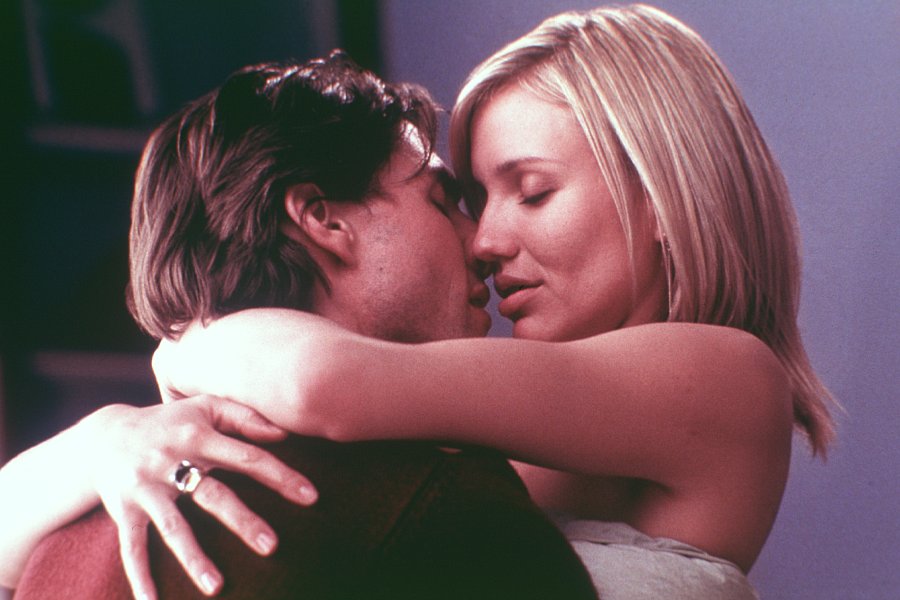Culture
Found Footage: “Vanilla Sky”

Found Footage is a new column every Thursday that explores films that were either overlooked, got unfair critical treatment or are in need of critical re-evaluation, whether positively or negatively. In this column, Nico Lang will explore such topics as the constant dogpiling on Sofia Coppola and Diablo Cody, the misunderstood genius of Nicolas Cage and why Nico is so personally offended by Forrest Gump. This week: Cameron Crowe’s Vanilla Sky.
“May not emerge as the biggest disaster of the holiday movie season, if only because we haven’t yet seen all the other year-end films. But it is a huge high-energy misfire, bringing Tom Cruise, Penelope Cruz, and Cameron Crowe to earth with a thud.” – Jay Carr, Boston Globe
In a lot of ways, the Rotten Tomatoes Tomatometer system has revolutionized the ways in which we review movies, and made the culture of film criticism relevant in a way we haven’t seen in some time. However, the thing about film aggregate systems, about the objectification of films into distinct categories of good and bad is that it often erases the reasons that we love films. Many of the films I adore and cherish most aren’t films I would call “good” or place on any sort of best list, and one of my most-watched films, I Know Who Killed Me, I would place on a shortlist of the “worst films ever made.” I have watched Gothika and All About Steve, two of the biggest disasters of their respective years, each about ten times, not because I think they are good but because I enjoy them for their innocent failures, for the fact that the filmmakers and actors seem to sincerely believe in these films. Sandra Bullock even showed up to accept a Razzie award for the latter and brought a little red wagon full of DVDs of the film to hand out to the audience, in order to help them change their minds about it.
However, of all the critically savaged films I love, Vanilla Sky stands out to me as being a special case. Adapted from the Spanish film Abre Los Ojos, Cameron Crowe’s most ambitious film is in many ways his most flawed, a film that is both ungodly terrible and brilliant, sometimes within the same scene. Like the equally fraught Elizabethtown, the biggest problem with Vanilla Sky is the fatal miscasting of its leads, two actors who do not share chemistry or even a common language. By casting Tom Cruise in the role of the preternaturally pretty and charming David, the fuckup son of a magazine mogul, the film unintentionally becomes a commentary on Cruise’s own narcissism. The film strives to make the self-absorbed, shallow David a hero and an everyman, but the larger-than-life nature of Cruise’s image makes that an impossible task. It just seems like Crowe is making excuses for David.
Even worse is Penelope Cruz, then a relative newcomer to acting in the English language. Although she likely nabbed her Razzie nomination that year for Captain Correlli’s Mandolin (a performance widely mocked because of her clear struggles with the dialogue), this resume-builder must have bolstered her application for the award. In Spanish, Cruz is effortlessly sexy, and you can see why Cesar would be so obsessed with her. But in English, and covered up with bag-lady bangs, Cruz comes off as awkward and stilted, and in certain moments the extremely difficult dialogue makes no sense coming out of her mouth. It’s not as if Cruz is just speaking lines she doesn’t understand; from her mouth, it’s like she’s speaking a language that doesn’t exist.
However, the strange thing is that Cruz’s performance is weirdly charming for all of its flaws, a nice complement to the movie around her. So much of Vanilla Sky is cluttered and forced, especially a last half hour that both over-explains a film better left ambiguous and makes parts of it more confusing. After seeing Vanilla Sky around twenty times, I’m still not completely sure about its chronology or what is and isn’t real, and I don’t think Crowe is sure, either. In particular, there’s a point early in the film in which we hear Penelope Cruz’s voice, even though her character technically hasn’t been introduced. Does that mean that the film’s alternate reality begins there? Does it have a purpose? Or does Crowe mean to just screw with us?
When you look at the smaller details of the film, it’s clear that Crowe and his actors have bitten off much more than they can chew with this film, a film it took Crowe years to translate from Spanish to English. And like many colossal misfires of the same caliber of ambition, the result is both fascinating and at times incredibly poetic. Most notably, Crowe gets a career-best performance out of Cameron Diaz, who shows a power and depth here that her nice girl roles had never even hinted at. Playing the damaged mistress Cruise tosses off to chase the dream of Penelope, Diaz goes full-on Jeanne Moreau in Jules and Jim, an influence the film even post-modernly name-checks. That’s because Crowe means to show the effects that culture has on all of us, the way it both constructs our identities and universes and imprisons us within them. The opening scenes of Vanilla Sky, where Crowe shut down Times Square in the service of Cruise’s ego and running skills, are the gorgeous embodiment of the pop philosophy Crowe means to espouse. Crowe is searching for the core of the human soul in a world driven by corporate greed and pervasive advertising, and even if he doesn’t get to the center of that journey, it’s fascinating to watch him try.